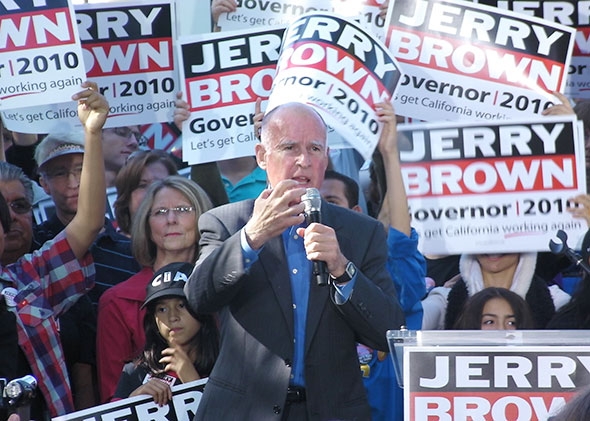
Why You Should Consider a Career Refresh
Instead of retirement, a career redux might be the best answer.

Courtesy of ThinkStock
California Governor Jerry Brown made history last year when he became the state’s longest serving governor. The healthy septuagenarian also happens to be the country’s oldest governor – and when first elected back in 1975 at age 36, he was the youngest. In a world of growing longevity, changing careers will be the norm, but having a coveted career more than once will happen more often as well.
When asked about holding the distinction of the longest serving California governor, Brown responded, “I’ve reflected on that. I’m in a unique position, so that makes me want to do something big.”
It’s worth noting that while Brown is older, his ambition to hold office and change the world hasn’t appeared to wane. He started out as a young eccentric individual who advocated for alternative energy and dated Singer Linda Ronstadt. Today, the older Brown is married, still eccentric, and continues to advocate for alternative energy, among other issues such as high-speed rail. He also appears to have gained patience and better self-control, which helps when managing people.
Barbara O'Connor, professor emeritus of political science at Sacramento State University, who worked with Brown for decades, told the San Francisco Chronicle that when it comes to negotiations, today “he's better at it and less confrontational” and that “he no longer needs to be the smartest kid in the room.”
One wonders if the same benefits of experience will accrue to another individual who recently stepped back into his former high-profile job: Bill Gates. Gates co-founded Microsoft in 1975 with Paul Allen and was CEO and product strategist for many years. In January 2000, he stepped down as CEO and in 2006, he announced that he intended to focus full time on philanthropy. But while Gates has had a big impact on the world through charity, his former company began to lose relevance. Earlier this year, Microsoft announced that, along with new CEO Satya Nadella, Bill Gates would be returning to work for 30 percent of his time as technical advisor.
“Is software the most exciting industry in the world? Absolutely,” says Gates. “We’re not even a third of the way towards empowering workers even to the dream that goes back to the start of the company.”
So Microsoft’s founder has returned to finish building his dream, but will he be better at managing his relationships with people? Gates has a reputation of being verbally combative and distant, but there is a chance that experience will have tempered those impulses, at least somewhat. A good sign in this direction is the fact that Nadella, who Gates helped to hire as CEO, has had his executive team read a book titled Nonviolent Communication. In any case, Gates is clearly excited about returning to lead Microsoft’s technical strategy and this development is a direct answer to an important philosophical question posed by academic Leon Kass.
Dr. Kass was formerly chairman of President Bush’s Council on Bioethics and has written widely on the ethics of longevity. In one of his essays, he argued that longer lives will lead to a decline in “interest and engagement.”
What would one do, Kass worried, after being “CEO of Microsoft, a member of Congress, or the President of Harvard for a quarter of a century?” The answer, at least in Bill Gates’s case, is ‘positively change the world through philanthropy and then return to Microsoft to help the company figure out how to re-invent itself for a new age.’ Both those pursuits on Gates’s part contribute to humanity, making longevity a real and tangible benefit, not an existential quandary.
Of course, there is no guarantee that when individuals return to their former roles that they will be successful. Arnold Schwarzenegger, who took a seven-year break from acting to be governor of California, has since made a handful of movies, all of which have underperformed at US box offices.
Terminator: Genisys, where Schwarzenegger will reprise his role as a cyborg, is scheduled to be released in the summer of 2015, so perhaps things will turn around for him. If not, he is healthy enough to have another go at a political position. With increased longevity, it’s safe to say that the phrase “I’ll be back” is not exclusive to the Terminator.